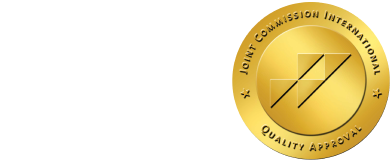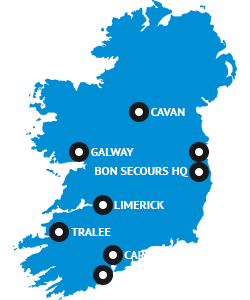Vestibular Rehab
Dizziness, vertigo and imbalance are symptoms commonly reported by adults to their doctor. These symptoms can have a negative impact on a persons’ quality of life, making it difficult for them to perform and enjoy their normal daily activities. Common symptoms include:
- dizziness on certain head movements
- vertigo – a feeling that you or the room around you is moving
- nausea and vomiting
- general loss of balance (often worse in the dark or on uneven surfaces)
- reduced activity due to avoidance of activities that provoke symptoms
- neck tension
The ‘Vestibular System’ in the inner ear gives information about balance, posture and the body's orientation in space. Our brain processes this information along with information from the eyes, the muscles and the joints, and puts it together so that we can move around normally and feel steady. A fault in this system is what causes the feelings of unsteadiness and dizziness. This is where vestibular rehabilitation comes in.
What is vestibular rehabilitation?
Vestibular rehabilitation is a specialized form of physiotherapy that aims to remedy vertigo and imbalance, and help you get back to normal as soon as possible. The physiotherapists undertake special training to provide a high quality service for our patients.
It consists of:
An individualised assessment to determine the cause of your problem. This includes specific tests which allow us to identify what part of your balance system is not working properly.
Certain measurements are taken to allow us to monitor your progress over time
Special treatment manoeuvres (if appropriate)
An individualized home exercise programme for you to work on at home. Exercises focus on bringing on symptoms to 'desensitise' the vestibular system, learning to co-ordinate eye and head movements, improving balance and walking skills
Education about the condition and how to cope and become more active.
Does it work?
There is a growing and consistent body of evidence to support the use of vestibular rehabilitation for people with dizziness, including a Cochrane review in 2011. For a lot of people, vestibular rehabilitation results in a complete resolution of dizziness/imbalance. Depending on what your particular problem is, this may occur within 1-2 treatment sessions, or it may take 6-8 weeks of exercising to improve.
For other people, symptoms will improve but not totally disappear. In this situation, the physiotherapist will help you to manage the condition and ensure it has the least possible impact on your life.
Who can Vestibular Rehabilitation help?
- Benign paroxysmal positional vertigo – BPPV (tiny crystals in the inner ear disrupt the normal function of the inner ear)
- Ménière's disease (a change in the thickness of the fluid in the inner ear)
- Vestibular Neuritis and Labyrinthitis (inflammation often caused by a viral infection)
- Toxicity of the ear caused by medicines
- Age-related problems
- General imbalance/dizziness problems
Should I have Vestibular Rehabilitation?
If you feel vestibular rehabilitation is needed for your condition, please contact the department to discuss your options. This service is very specialised and led by Elaine Collins, Senior Physiotherapist in Neurology & Elderly Care. Outpatients can attend for vestibular rehabilitation and advice without a GP or consultant referral.

